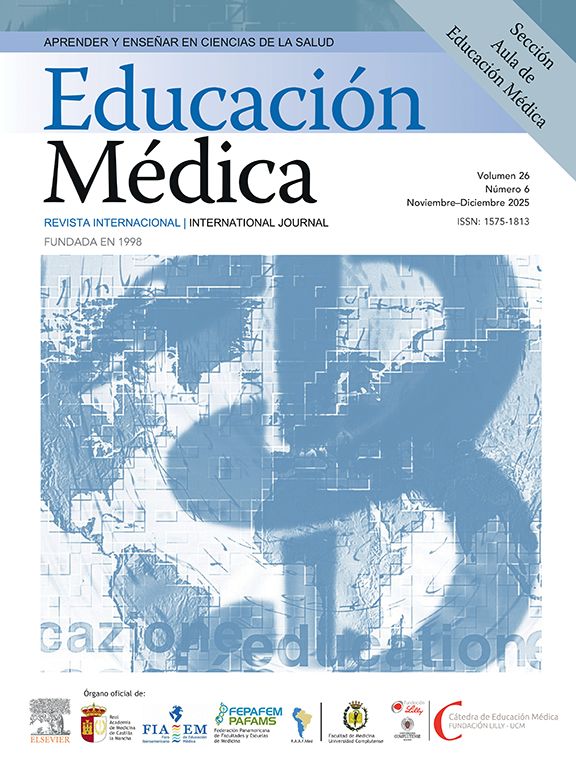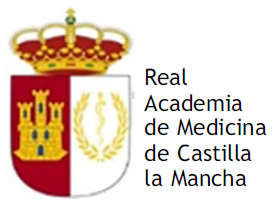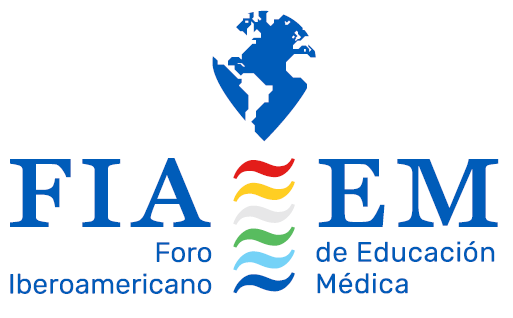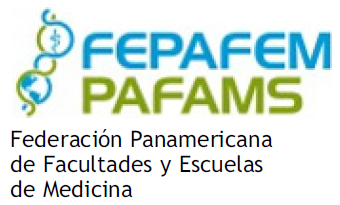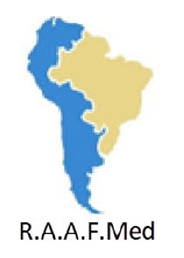Clinical research is vital for improving individuals' quality of life, yet many medical students find it complex and challenging. Therefore, it is essential to introduce research training programs early in undergraduate medical education to help students develop basic research skills. One example is the final degree project (FDP), which can be either experimental/research-based or a systematic review/clinical protocol. This study investigates medical students' perceptions of research FDPs based on effort and difficulty, as well as the associations between FDP-type election and the graduates' future interest in research.
MethodsA cross-sectional analytical study was conducted with 87 medical graduates from Jaume I University of Castellon. Data were collected through surveys, and both descriptive and inferential analyses were performed.
ResultsA significant relationship was found between research in the graduates' routine and the intention to pursue a doctoral thesis, as well as between the graduates' choice of FDP topic as medical students (experimental or research-based vs. systematic review or clinical protocol) and future engagement in a doctoral thesis. As this is an observational study, we cannot establish causality in this relationship. No significant associations were found between routine research and hospital size, gender, or career motivation, except for a potential significance in the relationship between FDP topic choice and medical specialty.
ConclusionsOur main findings suggest that medical graduates' perceptions of the complexity of research FDPs depend on their prior research experience. Therefore, it is crucial to provide more training in this area during undergraduate programs to prevent a lack of training from becoming a barrier to pursuing a research career.
La investigación clínica es vital para mejorar la calidad de vida de las personas, pero muchos estudiantes de medicina la encuentran compleja y desafiante. Por lo tanto, es esencial introducir programas de formación en investigación en las primeras etapas de la educación médica de pregrado para ayudar a los estudiantes a desarrollar habilidades básicas de investigación. Un ejemplo es el proyecto final de grado (TFG), que puede ser experimental/basado en investigación o una revisión sistemática/protocolo clínico. Este estudio investiga las percepciones de los estudiantes de medicina sobre los TFG de investigación en función del esfuerzo y la dificultad, así como la asociación entre la elección del tipo de TFG y el interés futuro de los graduados en la investigación.
Material y MétodosSe realizó un estudio analítico transversal con 87 graduados en medicina por la Universidad Jaume I de Castellón. Los datos se recolectaron mediante encuestas y se realizaron análisis tanto descriptivos como inferenciales.
ResultadosSe encontró una relación significativa entre la investigación en la rutina de los egresados y la intención de realizar una tesis doctoral, así como entre la elección del tema del TFG (investigación experimental o basada en revisión sistemática o protocolo clínico) por parte de los egresados en medicina y su futura participación en una tesis doctoral. Al tratarse de un estudio observacional, no se puede establecer causalidad en esta relación. No se encontraron asociaciones significativas entre la rutina de investigación y el tamaño del hospital, el género o la motivación profesional, excepto por una potencial significatividad en la relación entre la elección del tema del TFG y la especialidad médica.
ConclusionesNuestros principales hallazgos sugieren que las percepciones de los graduados en medicina sobre la complejidad de la investigación dependen de su experiencia previa en TFGs de investigación. Por lo tanto, es crucial brindar más formación en esta área durante los programas de pregrado para evitar que la falta de capacitación se convierta en una barrera para perseguir una carrera investigadora.
Scientific research stands as a cornerstone of human advancement, enriching knowledge across various fields, tackling everyday challenges, and enhancing societal well-being. Nowhere is its impact more profound than in medicine and biomedicine, where it has revolutionized disease diagnosis, prevention, and treatment. Recent breakthroughs, exemplified by the swift development of COVID-19 vaccines amid a global pandemic, underscore its pivotal role in transforming fatal diseases into manageable conditions, significantly elevating individuals' quality of life.1,2
Furthermore, the continuous progression of scientific knowledge, stemming from both basic and applied research, ensures that students receive contemporary and pertinent training throughout their educational journey. This not only nurtures fundamental competencies in science, technology, engineering, and mathematics (STEM) but also cultivates a broader scientific literacy globally. Evidence from studies, such as the BBVA Foundation's research on Scientific Culture,3 indicates a substantial rise in scientific literacy, particularly among the youth and degree holders in Spain.4 However, despite these advancements, there persists a challenge in attracting individuals, notably medical doctors, to pursue careers in scientific and technological research.5
The pivotal role of physician-researchers in addressing clinical exigencies underscores the significance of early research training, commencing at the undergraduate level and extending through graduate studies into medical specialization residency.6 Nonetheless, there is a lack of scientific literature exploring the obstacles confronting physicians in their pursuit of research, including time constraints, resource scarcity, and inadequate training. It becomes imperative, therefore, to conduct methodologically sound studies to elucidate these primary impediments for medical students and professionals venturing into scientific careers or engaging in research.7 Key inquiries include examining whether these barriers stem from prior training or scientific exposure and if gender disparities exist in encountering these hurdles.
For many medical students, their inaugural encounter with practical research materializes through the Final Degree Project (FDP). These projects span diverse types, encompassing clinical protocols, systematic reviews, clinical research papers, and experimental studies.2 The distinction between research-oriented and non-research projects assumes paramount importance. This study aims to explore how the nature of FDPs impacts medical students' perceptions of research and, consequently, their inclination toward pursuing careers as physician-researchers, integrating research into their clinical practice. However, we acknowledge the observational nature of this study and try to avoid making causal assumptions. In short, this study seeks to discern whether the exposure to science and research during undergraduate studies acts as a catalyst or a hindrance in shaping physicians' research commitment from the first stages of their educational journey.8
The challenges confronting scientists in their research accomplishments are multifaceted. From time constraints imposed by clinical practice demands to the paucity of training in research methodology, from limited financial incentives to institutional barriers, the landscape is rife with complexities. Moreover, the realm of medical research grapples with additional intricacies such as coping with the rise of chronic diseases, integrating regenerative medicine, navigating the complexities of precision medicine, and harnessing the potential of artificial intelligence while ensuring ethical and legal adherence.9
In the Spanish context, the medical profession operates within a rigorous and fiercely competitive system, presenting substantial hurdles to meaningful engagement in research pursuits. A primary deterrent to research involvement among many doctors in Spain, apart from their demanding workloads, is the inherently challenging nature of the Spanish healthcare system itself. Spanish doctors undergo an extensive academic odyssey, encompassing six years of medical education, followed by a competitive national exam, the MIR (Medical Internal Resident) exam, and subsequent specialization spanning four to five years. The culmination of this arduous journey often entails further examinations to secure coveted positions through the highly competitive public examination system known as “oposiciones”.4 This rigorous system, coupled with the imperative to maintain clinical proficiency, leaves scant room for research activities, despite the perceived advantage of holding a doctoral degree in public examinations. The emphasis on academic achievements within the ambit of the public selective process framework exacerbates these challenges.10
Despite the acknowledged value of a doctoral degree within the public examination system, the demanding and competitive nature of the Spanish medical landscape poses formidable challenges for medical doctor's keen on active research participation. Addressing these challenges necessitates the establishment of more supportive structures to foster a heightened interest in research within the Spanish medical guild, thereby nurturing a thriving research ecosystem. In this context, this study tries to explore the medical students' views on research FDPs concerning the level of effort and challenges involved, as well as the connection between the type of FDP chosen and graduates' future enthusiasm for research.
MethodsAn analytical cross-sectional study was conducted to examine a group of former students enrolled in the Medicine program at the University Jaume I (UJI) in Castellon, Spain. The study included medical graduate participants from the academic years 2016–2017 and 2017–2018, totalling 87 medical graduates (with 49 females). Ethical approval was obtained from the Committee for Research Ethics and Integrity of the UJI.
Each medical graduate (former UJI medical student) completed a detailed questionnaire consisting of 30 questions covering various areas: (i) type of university enrolment (general, disability, elite athletes, etc.); (ii) type of FDP (research/experimentation vs. systematic review/clinical protocol); (iii) reasons for FDP selection (based on the descending order of academic record grades); (iv) perceptions of effort and difficulty associated with research/experimental FDPs compared to review/clinical protocol ones; (v) inquiries about postgraduate research training (doctorate, master's degree) and intentions to integrate research into their professional practices. In all cases, we had qualitative variables with varying numbers of categories.
After collecting the data, descriptive analysis was conducted, followed by inferential analysis to identify potential associations between variables. Non-parametric statistical tools, specifically the Chi-square test and Fisher's exact test, were used. Fisher's exact test was applied when any group had an expected event count lower than 5. A statistically significant result was defined as α = 0.05.
Various statistical tests were conducted on the responses provided by medical graduates. The analysis began with a cross-tabulation or contingency table analysis, a common method in descriptive statistics used to understand the relationship between two categorical variables. The chi-square test, together with the Fisher exact test, was used to test the dependence/independence between the variables.
ResultsFig. 1 graphically shows the relationship between the variable “Routine”, indicating whether medical graduates wished to include research in their daily clinical routine (yes or no), and “Future Thesis”, indicating whether graduates intended to pursue a doctoral thesis in the future (yes or no). A significant p-value of 0.007 was obtained in the chi-squared test, leading to the rejection of the null hypothesis, and thus suggesting the existence of a relationship between the variables. This finding supports the intuitive expectation that medical graduates planning to pursue a doctorate in the future are also likely to integrate research into their routine. It should be noted that this is not an analysis of variable association but rather a description of the distribution of responses regarding the research intentions of the medical students.
Furthermore, in response to the question about the importance of science in medicine – Do you think research in the medical/biomedical environment is important? –, all graduates unanimously affirmed its significance.
Exploring the relationship between the size of the hospitals where medical graduates conducted clinical placements (categorized as large, medium, or small) and their inclination to include research in their routine – As a doctor, do you plan to incorporate research into your daily routine? –, Fig. 2 yields a non-significant p-value (>0.05). This result indicates that no association was found between hospital size and the routine incorporation of research. The association between hospital size and whether graduates had undertaken a thesis was also explored, resulting in a non-significant p-value (0.525). This supports the acceptance of the null hypothesis, indicating the independence of these variables.
The same analysis was repeated between the variables “Routine” and “Sex” (Fig. 3), and in this case, the p-value of the chi-squared test did not reach the conventional level of significance (0.05), indicating the absence of a significant association between routine incorporation of research and sex.
Further investigation into the motivation behind pursuing a medical career, whether driven by vocation or scientific interest, in relation to routine incorporation of research (Fig. 4), yielded high p-values (0.352), suggesting no significant evidence to reject the null hypothesis of independence between these variables.
The association between routine incorporation of research and the chosen medical specialty was also examined, specifically comparing family medicine/general practitioner with other specialties. The high p-value obtained in this case (>0.05) indicated no significant evidence of association between research routine and medical specialty. Another analysis, comparing the incorporation of research into the clinical routine to a medical versus a surgical specialty, was not significant either.
Regarding medical graduates' specialty and their motivation for choosing to pursue a doctoral thesis, a p-value of 0.08 was obtained, suggesting potential significance (Fig. 5). Although approaching significance, this result implies that graduates choosing other specialties – such as Intensive Care Unit, Digestive System, Radiodiagnosis, Traumatology, Pediatrics, Cardiology, Radiology, Obstetrics and Gynecology, Neurology, Internal Medicine, General Surgery, Nuclear Medicine, Hematology, Endocrinology, Clinical Neurophysiology, Anaesthesiology, Pathological Anatomy, Pediatric Surgery, Urology, Oncology, Radiation Oncology, Preventive Medicine and Public Health or Intensive Medicine – were more likely to undertake a thesis than graduates choosing Family/General Medicine. As in the previous analysis, when the thesis undertaking was matched to medical versus surgical specialties, the result was also far from significant.
In the context of graduates undertaking a doctoral thesis, the relationship between their previous choice of FDP topic (experimental/research versus clinical protocol/systematic review) was found to be significant (p = 0.011; Fig. 6). This indicates an association between the variables, specifically that medical graduates who end up choosing an experimental or research-based FDP were more likely to undertake the doctoral thesis in the future.
DiscussionThe study provides valuable insights into the factors that affect medical graduates' involvement with research and its integration into their professional routines. A significant relationship was found between medical graduates aspiring to pursue a thesis and their inclination to incorporate research into their daily routines, suggesting a connection between long-term research projects and routine practice. However, this study does not establish a cause-effect relationship due to this observational nature. Besides, all surveyed graduates and alumni unanimously affirmed the importance of science in medicine, indicating a shared understanding within the medical community.
The size of the hospital where clinical placements occurred did not impact graduates' inclination to integrate research into their routines, indicating consistent attitudes across different hospital sizes. Additionally, hospital size was independent of whether medical graduates had undertaken a doctoral thesis, indicating diverse motivations for research engagement. Gender and the choice of medical specialty also did not significantly influence the integration of research into routines, suggesting uniformity regardless of these factors.
The motivation behind pursuing a medical career, whether driven by a vocation or scientific interest, did not significantly affect the routine incorporation of research, indicating that initial motivations do not strongly influence research integration.
While an almost significant p-value (0.08) suggested that graduates choosing other clinical specialties different to Family/General Medicine were more likely to complete a thesis, further investigation is warranted regarding the association between research interest or doctoral thesis initiation and medical specialty. Previous studies on this matter have indicated that engagement in research during medical school influences specialty choice.11,12 These works found that medical students with research experience were more likely to pursue academic careers and specialties with strong research components, such as internal medicine, surgery, and radiology.11 Also, students interested in primary care (e.g., Family Medicine) often prioritized clinical training over research, which may explain the lower thesis completion rates in this group.12
A significant relationship was found between the graduates' choice of FDP topic as medical students (experimental or research-based vs. a systematic review or clinical protocol) and future engagement in a doctoral thesis, where students who chose an experimental or research-based FDP were subsequently more likely to initiate a doctoral thesis as medical graduates. This highlights the importance of both personal interest and research undergraduate training in driving research commitment. Nonetheless, it is important to emphasize that these findings reflect associations rather than causality.
This study reflects the unanimous acknowledgment of the importance of research in the medical field among physicians. Additionally, the majority of medical graduates (already physicians) expressed a desire to incorporate more research into their medical studies, indicating a correlation between involvement in scientific fields and thesis initiation. However, although scientific findings such as these are not absolute truths, they certainly contribute to the ongoing body of knowledge in the field.
Overcoming these barriers requires a multidisciplinary approach that includes institutional support, collaboration among investigators, and ongoing training in research methods. Adding undergraduate research training, including experimental or research-based FDPs, may increase interest in research among medical graduates and future clinicians.
The findings of this study highlight the need for structural changes in medical education and healthcare policies to foster a culture of research among physicians.13 One key implication is the integration of research training into medical curricula at earlier stages, particularly through compulsory experimental or research-based FDPs. This would provide students with the necessary skills and experience to conduct research efficiently while reinforcing its relevance to clinical practice.14 Additionally, mentorship programs pairing medical students with experienced researchers could enhance motivation and facilitate guidance in thesis completion and future research endeavors.
To address the time constraints faced by physicians, institutions should implement flexible research pathways, such as protected research time during residency training and faculty positions that combine clinical practice with academic research.13 Furthermore, incentivizing research through career development opportunities, such as grants, scholarships, and recognition for research contributions, may help sustain long-term engagement.11 Collaboration between universities and hospitals can also enhance access to resources, funding, and interdisciplinary projects, further integrating research into routine medical practice.
Finally, policymakers should consider strategies to alleviate the high workload in clinical settings, such as adjusting staffing models to create dedicated research periods for physicians.14 Additionally, the introduction of digital platforms for collaborative research and data sharing could streamline research efforts, making them more feasible alongside clinical duties. By implementing these strategies, medical institutions can create an environment that not only promotes research engagement but also enhances the quality and impact of scientific contributions within the medical community.14
ConclusionsIn summary, the study provides nuanced insights into the complex relationships between various factors influencing medical graduates' engagement with research. These findings enhance our understanding of the factors shaping the integration of research into routine medical practice.
In conclusion, although some findings lack statistical significance, they reveal that the surveyed medical graduates show motivation for research and recognize its importance, with this drive often rooted in undergraduate training. However, the demanding nature of Spain's healthcare system limits the extent of research engagement among physicians, as they face constraints in balancing clinical duties with research. Although the system encourages completing doctoral theses, their scientific quality may be compromised due to time and resource limitations. Enhancing research training in medical education is essential, as it not only broadens students' academic perspectives but also improves the quality of patient care and contributes to the advancement of medical science.
Funding and acknowledgmentsJLG-A acknowledges UJI industrial predoctoral fellowship. EC thanks the AECC predoctoral fellowship. AL acknowledges the postdoctoral contract (Margarita Salas 21–076) and MAM-T the Maria Zambrano research contract (MAZ/2021/03 (UP2021–021). Both have been funded by the European Union-Next generation EU. MAM-T is funded by ‘Ramon y Cajal Research Fellow’ RYC2022–038481-by MCIN/AEI/10.13039/501.
Informed consent statementAll subjects included in the study gave their consent to participate.
Institutional review board statementThis study was approved by the Committee for Research Ethics and Integrity of the Jaume I University of Castellon.
The authors declare no competing of interest.



